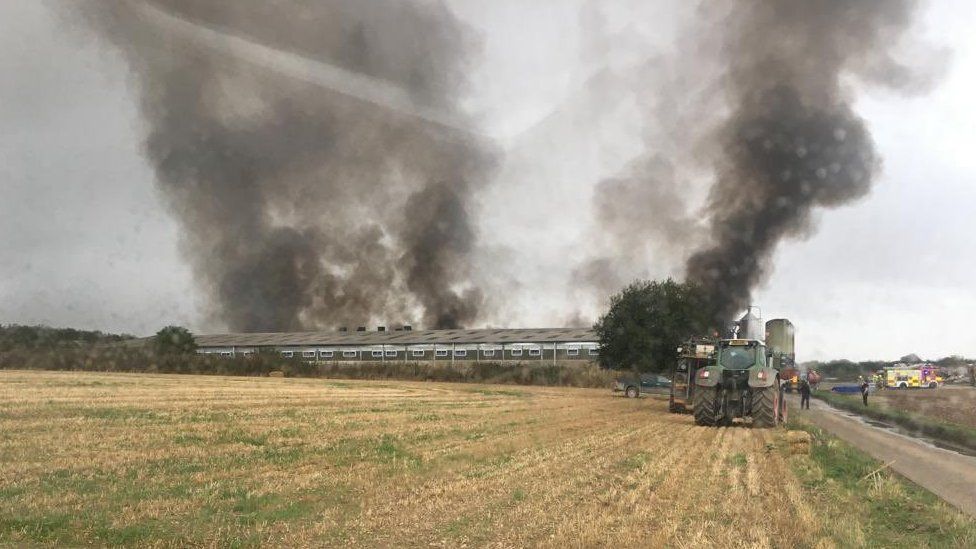
Thousands of pigs and chickens have died in two separate farm fires that occurred in Oxfordshire and Northern Ireland over the weekend.
A number of pigs were killed after a large blaze broke out at a farm in Oxfordshire at around 4pm on Friday (8 October).
Oxfordshire Fire and Rescue Service said five crews and three specialist units tackled the 'significant' fire at Mongewell, near Wallingford.
“The fire is in an agricultural unit, where a number of pigs are known to have sadly been involved,” the service said in a statement.
Residents close to the farm were advised to shut all doors and windows.
Elsewhere, approximately 16,000 chickens were killed in a fire at a farm located in Belcoo, Co Fermanagh on Sunday (10 October).
The NI Fire and Rescue Service (NIFRS) said in a statement that it had received a report of the fire at around 7:30am.
A spokesperson said: “Firefighters using breathing apparatus and water jets worked in difficult conditions to bring the large shed fire under control by 3.50pm.”
“Unfortunately, 16000 chickens were killed in the incident. Investigation into the cause is ongoing.”
It is currently not known what caused both fires, however investigations are underway.
The cost of farm fires in the UK reached a five-year high in 2019, totalling over £49m, according to the most recent claims statistics by NFU Mutual.
Electrical faults accounted for over half the total last year, followed by arson which rose by 40 percent to £9 million.
How can I reduce the risk of fire?
NFU Mutual has offered farmers and landowners tips on how to lower the risk of fires:
Fire prevention:
• Get electrical systems and equipment regularly inspected by a competent electrician
• Don’t overload electrical systems – and avoid using multigang connectors
• Ensure there are sufficient fire extinguishers for the size of buildings and that they are inspected regularly to ensure they are in the right location and condition
• Ensure staff and adult family members know the location of fire extinguishers and how to use them
• Reduce the risk of arson by fencing off straw stacks and farm buildings
• Use CCTV cameras on straw stacks and farm buildings, along with warning signs to deter arsonists
• Store hay and straw away from equipment that could give off heat (e.g. hot vehicle engines, overhead lights) and at least 10m from other buildings
• Put in place an evacuation plan for staff and livestock
• Store petrol, diesel and other fuels in secure areas
• Pre-plan hot works such as welding in clear areas
• Ensure you have safe, designated smoking areas
• Ensure you can direct emergency services to the exact location of fires e.g. download the what3words app which pinpoints specific 3m x 3m locations
• Ask your local Fire and Rescue service to visit to check water supplies and access routes
If a fire breaks out:
• Make sure everyone evacuates the immediate area and remains in a safe location
• Call the Fire and Rescue Service without delay
• If possible, send someone to the farm entrance to direct the Fire and Rescue Service to the fire
• Prepare to evacuate livestock but only if safe to do so should the fire spread
